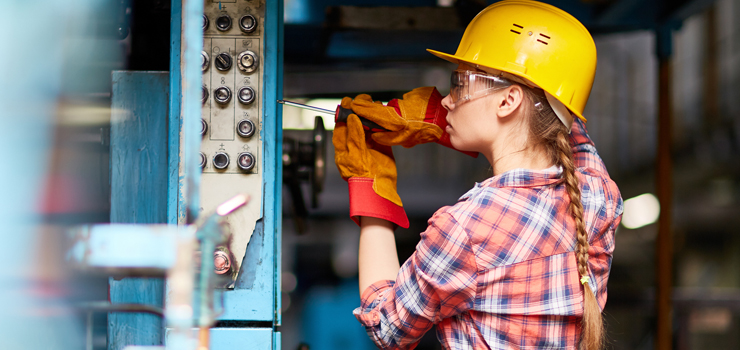By Candace Roulo
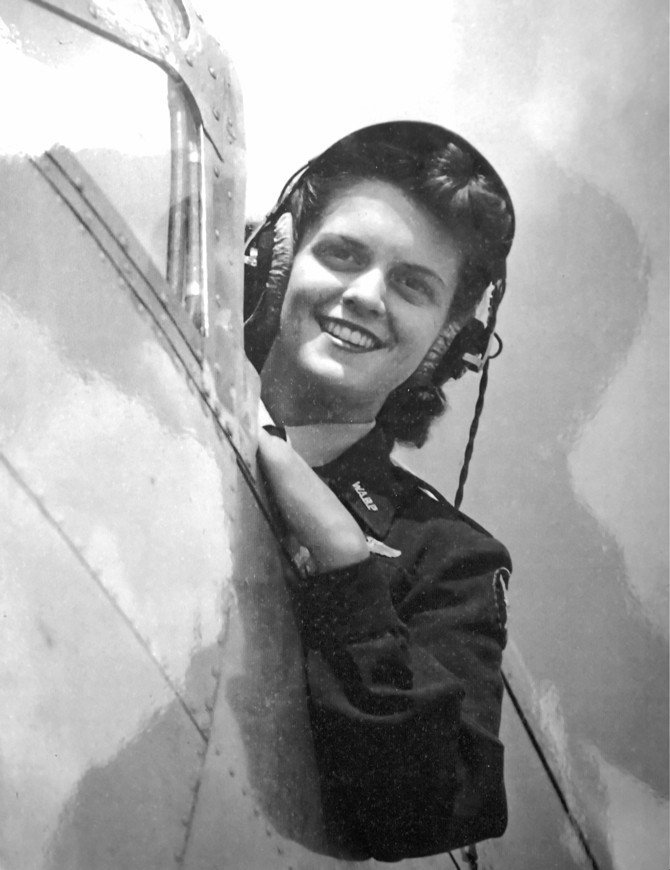
Jane Doyle was one of the Women’s Airforce Service Pilots (WASPs) during WWII.
On a January Sunday morning, I came across the article “Last Michigan WWII Fly Girl Dies at Age 97” in the Detroit Free Press. Her name was Jane Doyle and she was one of the Women’s Airforce Service Pilots (WASPs) during WWII. The article was an interesting read as I wondered why there are not more women working in the mechanical contracting industry.
I am a history buff, and when reading about the history of WWII it’s easy to understand why women played a critical role during the war. More than 1,000 women were recruited to fly stateside for the U.S. Army Air Forces, and this would be the springboard for women to enter the aviation industry, notes Kristen Wildes, director of the Ada Historical Society, in Ada, MI.
“Through their dedication and service, the WASPs got a foot in the door of a future that would slowly open to women in aviation,” noted Wildes in the article.
Now let’s switch gears and look at some recent labor stats for women working in the labor market and construction. In 2016, women’s labor force participation was 56.8 percent, not much of a change from 56.7 percent in 2015. Also, in 2017, 57 percent of women participated in the U.S. labor market, according to the U.S. Bureau of Labor Statistics (Current Population Survey 2017). Also, the need for construction workers and laborers is expected to grow 12 percent between 2016 and 2026.
Yet, while more than 10 million people worked in construction fields in 2016, less than 10 percent were women, noted the National Association of Women in Construction (NAWIC) in the article “Construction Industry has Jobs, but too Few Women.”
The Trades Need Women

Danielle Putnam, president of Women in HVACR and president of The New Flat Rate Inc.
According to Danielle Putnam, president of Women in HVACR and president of The New Flat Rate Inc., the industry is anticipating a 21% increase in the need for HVAC mechanics and installers from 2012 to 2022, combined with the estimated retirement of a large percentage of current HVAC employees— to survive, the industry needs women. Women in HVACR created the Ambassador Program to reach out to women and expose them to the field.
“This year the association’s goal is to begin identifying one ambassador in each state,” said Putnam. “We are developing a program to equip these ambassadors to go into the elementary and high schools to showcase the opportunities of a career in HVAC. Naturally this is only one initiative and we need many.”
Putman also thinks coming together as a community with a unified voice to help build awareness of the industry is key to recruiting women. She points to the tech industry doing a great job increasing awareness of women in that field, and the mechanical contracting industry can do the same.
“Magazines, blogs, articles, videos and news outlets have made a big deal about women in tech,” said Putnam. “They’ve been building a buzz, and this happened over time, not overnight. Plus, it’s going to take all of us reaching out to our friends and families to snowball the awareness our industry is looking for.”
Tell Your Story
Just as Jane Doyle and other Fly Girls helped open the door to women entering the aviation industry during WWII, women presently working in the mechanical contracting field can do the same by being trailblazers of the industry, telling their stories and being role models and mentors to young women.
Teresa Woods-Cox, CEO of T.A. Woods Co., Wilmington, North Carolina, grew up in the country where just about everyone had a trade. Her father was an electrician, contractor and land developer. She always had an interest in construction, but took a different path in college. However, in 1991 she had the opportunity to go back into construction, specifically mechanical contracting, and never looked back. “I was drawn to building systems due to the science and art of design and installation,” said Woods-Cox.” To walk into a mechanical room and see the precision of the piping coupled with the art of the installation even when there are obstacles continue to be rewarding.”
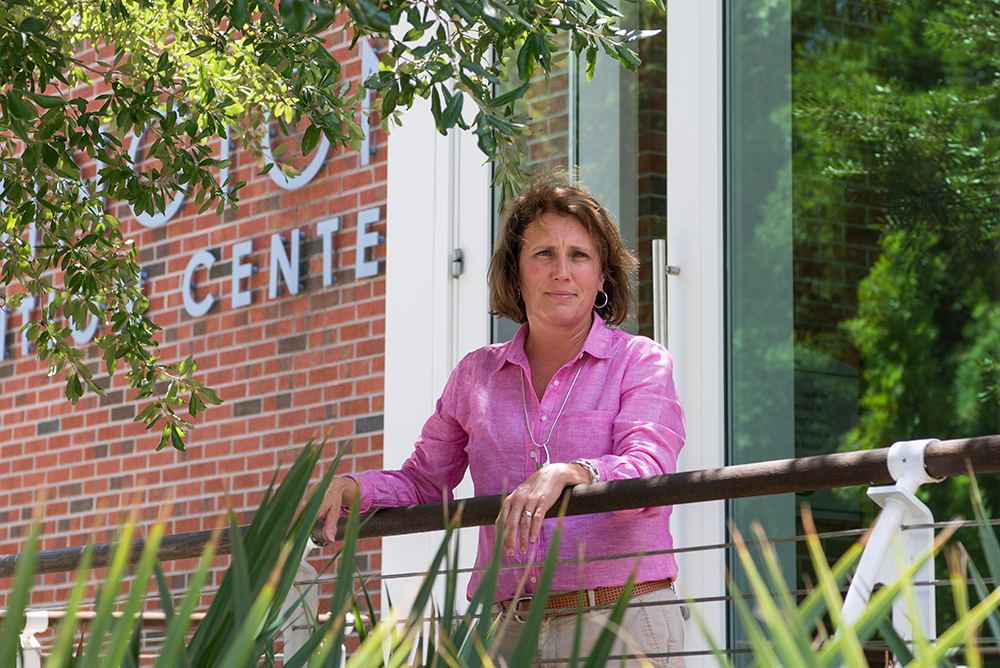
Above: Teresa Woods-Cox, CEO of T.A. Woods Co., Wilmington, North Carolina, grew up in the country where just about everyone had a trade.
Her experiences in mechanical contracting have been beyond anything she could have imagined. ”The ability to help build hospitals, schools, college campuses, military structures, and retail centers by installing the buildings’ mechanical, plumbing and electrical systems allows my team to be a part of each building’s history,” said Woods-Cox. “A part of our company will be a part of each structure indefinitely.
“For women contemplating entering the mechanical field, I would give the same advice I would give to any male entering the field,” said Wood-Cox. “Determine what you like, determine what skill sets you have, determine the skill sets you can develop, determine you career path. Have determination. When you are good at what you do, gender doesn’t play as a significant role.”
Noelle Nelson, plumbing and sheet metal apprentice at Nelson Mechanical Design, Edgartown, Mass., encourages all young women to consider choosing a career in the trades.
“I’ve never felt more empowered or strong” said Nelson. Yet Nelson realizes it can be tough when starting out in a male-dominated trade. “Walking onto a jobsite being the only female can be hard, but if you remember you belong there just like everyone else, it makes it easier.”
Nelson points out that a career in the contracting industry is a rewarding and in-demand career. “It’s important to highlight the high wages and how that gives you independence,” said Nelson. “The money made in the trades far outshines the money made in other professions. Plus, there are the everyday puzzles to solve, such as non-functioning furnaces and the intrigue of control wiring.”
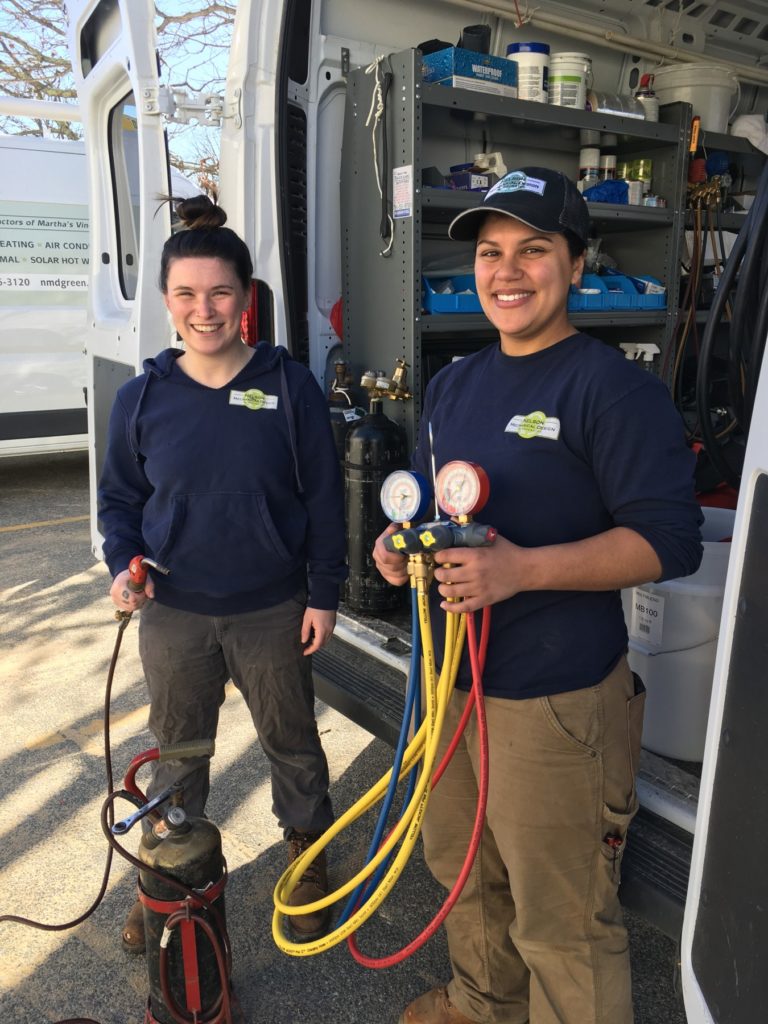
Above (left to right): Noelle Nelson and Mariah BenDavid, sheet metal apprentices at Nelson Mechanical Design.
Mariah BenDavid, also a plumbing and sheet metal apprentice at Nelson Mechanic Design, says that working in the mechanical contracting industry is very rewarding, but anyone in the field needs to have grit.
“Every day is different and you never know what you’ll be doing next,” said BenDavid. “When the pieces start to fall into place as you’re learning your trade,it’s the best feeling. I won’t lie—you do need a little grit and tough skin some days–the equipment doesn’t care how you feel or if you are tired, it just does whatever the laws of physics demand.”
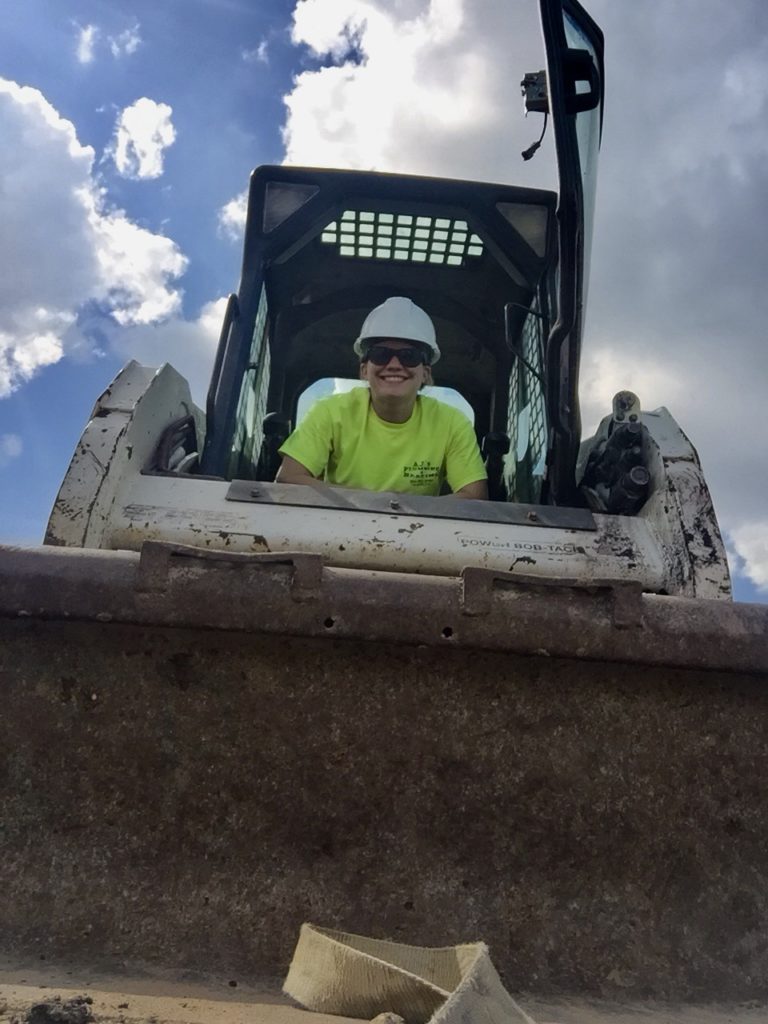
Kimberly Ostarly, a contractor at A.J.’s Plumbing & Heating.
When 18 years old, Kimberly Ostarly, A.J.’s Plumbing & Heating, Harahan, Louisina, became more involved with the plumbing industry and decided to pursue different options in the field. Her dad and family have businesses in the industry. “I was interested in learning more, so I decided to stick with it and pursue my license. I worked with different plumbers doing undergrounds, top outs, fixture setting, gas lines and repairs so that when I took the test I would be well prepared. I passed and received my Journeyman Plumbing license over two years ago.”
Ostarly thinks the industry is now more female friendly. “There are a few bumps in the road that woman may have to face, but it is shows that you will not back down and you will continue doing the job you want to do—that helps surpass any intimidation.”
“The future is bright for women in the trade industry,” added Ostarly. “There is a platform for women in the trade industry and the numbers will only increase in the future.”
The women interviewed for this article are just a handful of the women in the mechanical contracting industry that have successful careers. If you are a woman in the mechanical contracting industry, make it a point to be a role model for women and represent the industry—tell your story and help increase awareness. It will make a difference and possibly influence a woman (or man) to consider a career in mechanical contracting. Look at the difference Jane Doyle and the Fly Girls made for the aviation industry. You can make the same difference for the mechanical contracting industry.
Jane Doyle said, “They call us pioneers … the women in different fields of aviation, even the astronauts and the gals in the military, they all say, ‘If it wasn’t for you, we wouldn’t be doing this today.'”
Candace Roulo, a graduate of Michigan State University’s College of Communication Arts and Sciences, is a technical writer covering topics in the mechanical contracting and manufacturing industries.

